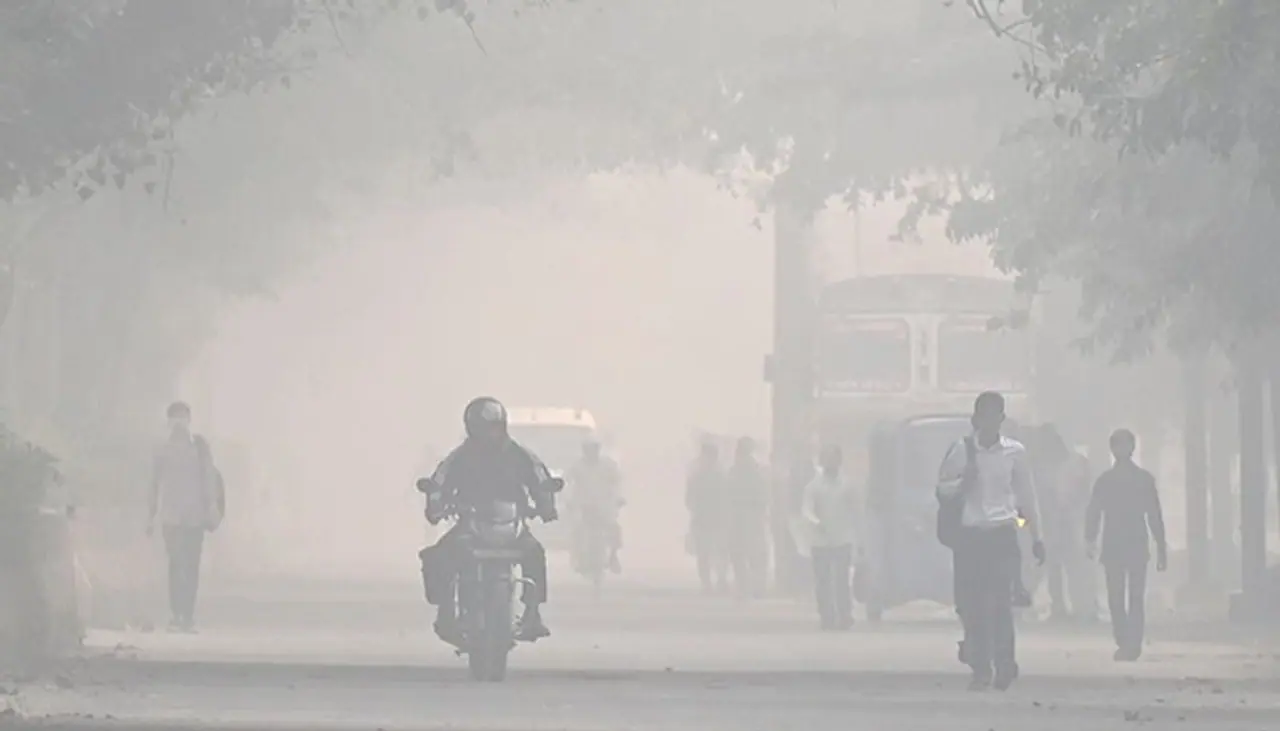Why a morning walk or jog in polluted Delhi poses a health risk
Exercising, like jogging, in very poor air quality can be harmful to your health due to increased inhalation of pollutants, reduced oxygen intake, exacerbation of respiratory conditions, cardiovascular stress, long-term health risks, decreased exercise performance, and discomfort

The national capital's air continues to remain severely polluted for the fifth consecutive day on Monday (October 6) morning with the Air Quality Index (AQI) still in the 'severe' category. The overall AQI in the city was recorded at 488. This is even though all kinds of demolition and construction works in Delhi have been suspended.
Nevertheless, that has not deterred the city's fitness-conscious people from venturing out. What they do not realise is that taking a jog amid very poor air quality can be harmful to their health. There are several reasons for this. Let's take a look.

Inhalation of Pollutants: Poor air quality often contains a higher concentration of pollutants, such as fine particulate matter (PM2.5), ground-level ozone, carbon monoxide, sulfur dioxide, and nitrogen dioxide. Inhaling these pollutants during exercise can lead to respiratory problems and may exacerbate pre-existing conditions.
Reduced Oxygen Intake: When the air quality is poor, the concentration of oxygen in the air may be lower. This means that your body has to work harder to extract the same amount of oxygen from the air during exercise, which can lead to feelings of breathlessness and fatigue.
Aggravation of Respiratory Conditions: If you have pre-existing respiratory conditions like asthma or chronic obstructive pulmonary disease (COPD), exercising in poor air quality can worsen symptoms and lead to bronchoconstriction and inflammation of the airways.
Cardiovascular Stress: Poor air quality can also increase the stress on your cardiovascular system. Inhaling pollutants can lead to systemic inflammation and oxidative stress, which can harm blood vessels and the heart.
Long-term Health Risks: Repeated exposure to poor air quality, especially during exercise, is associated with long-term health risks. This includes an increased risk of respiratory diseases, heart diseases, and even a shorter life expectancy.
Decreased Exercise Performance: Exercise performance can be compromised when you're trying to run or jog in poor air quality. You may find it harder to breathe, experience reduced endurance, and have decreased overall performance.
Irritation and Discomfort: Poor air quality can cause throat and eye irritation, coughing, and a general feeling of discomfort while exercising. This can make your workout less enjoyable and effective.
It is essential to monitor air quality levels in your area and consider alternative forms of exercise or indoor workouts when air quality is very poor. If you do decide to exercise outdoors when air quality is compromised, it's advisable to take precautions such as wearing a mask designed to filter out pollutants and listening to your body.
Stay updated with the Breaking News Today and Latest News from across India and around the world. Get real-time updates, in-depth analysis, and comprehensive coverage of India News, World News, Indian Defence News, Kerala News, and Karnataka News. From politics to current affairs, follow every major story as it unfolds. Get real-time updates from IMDon major cities weather forecasts, including Rain alerts, Cyclonewarnings, and temperature trends. Download the Asianet News Official App from the Android Play Store and iPhone App Store for accurate and timely news updates anytime, anywhere.